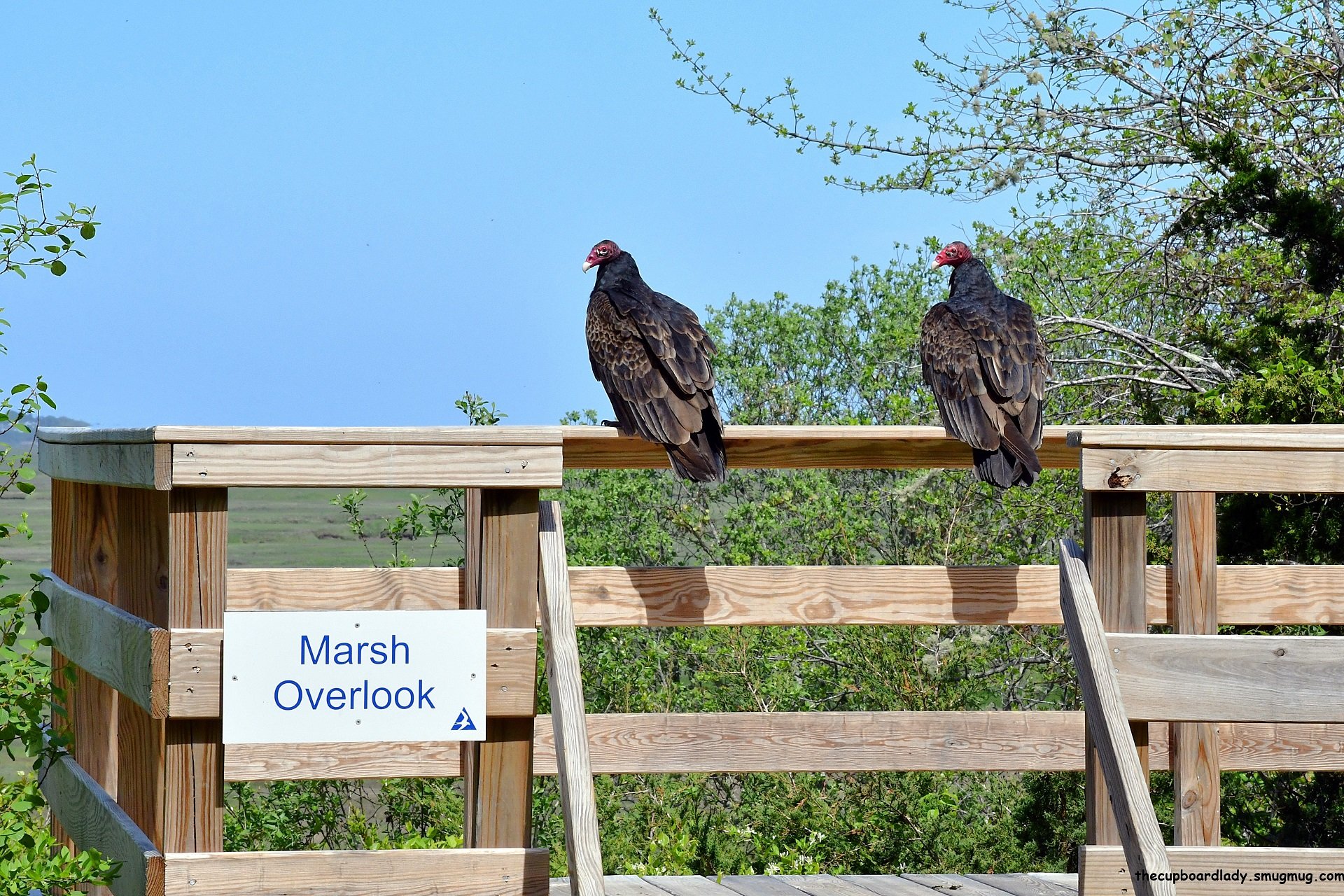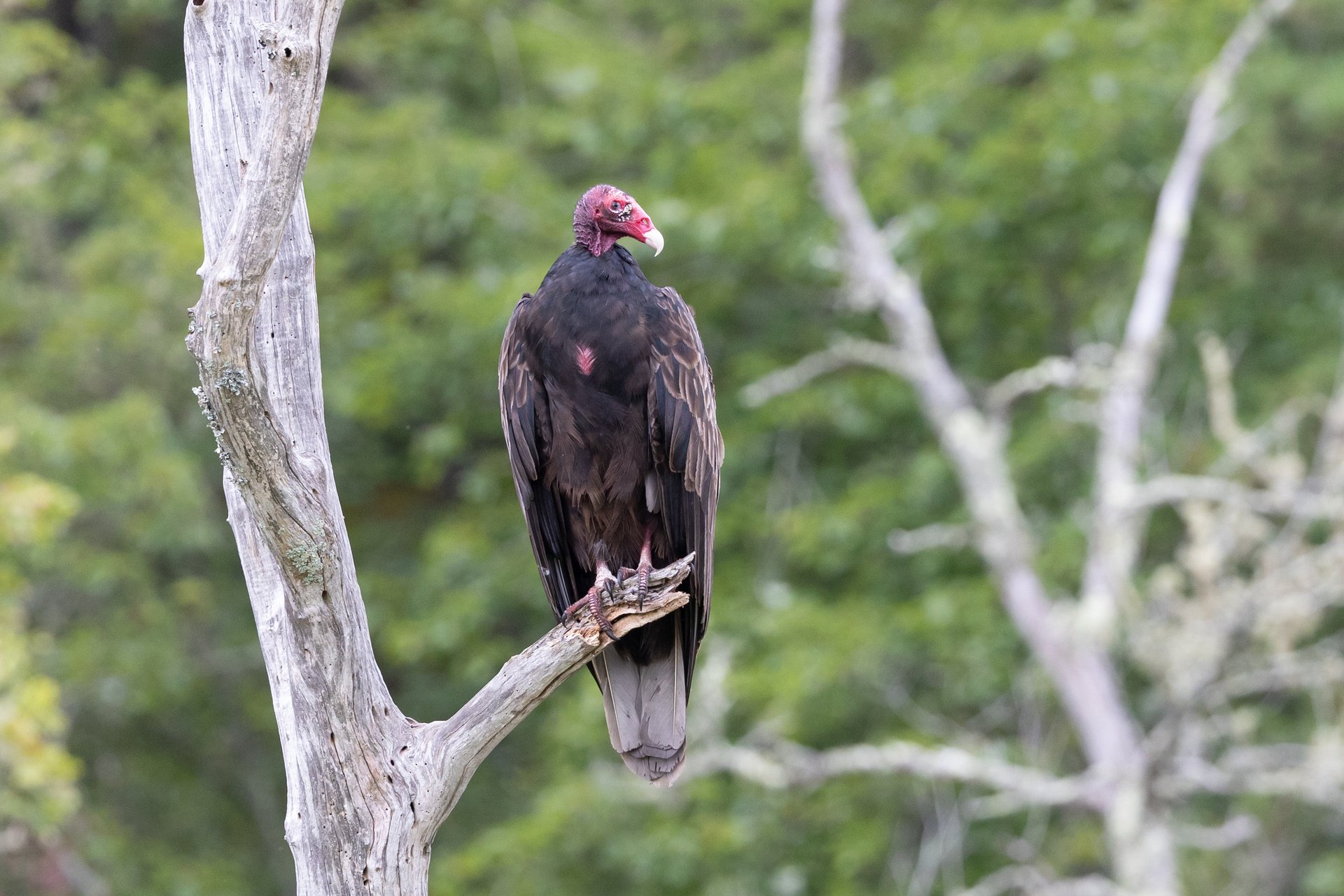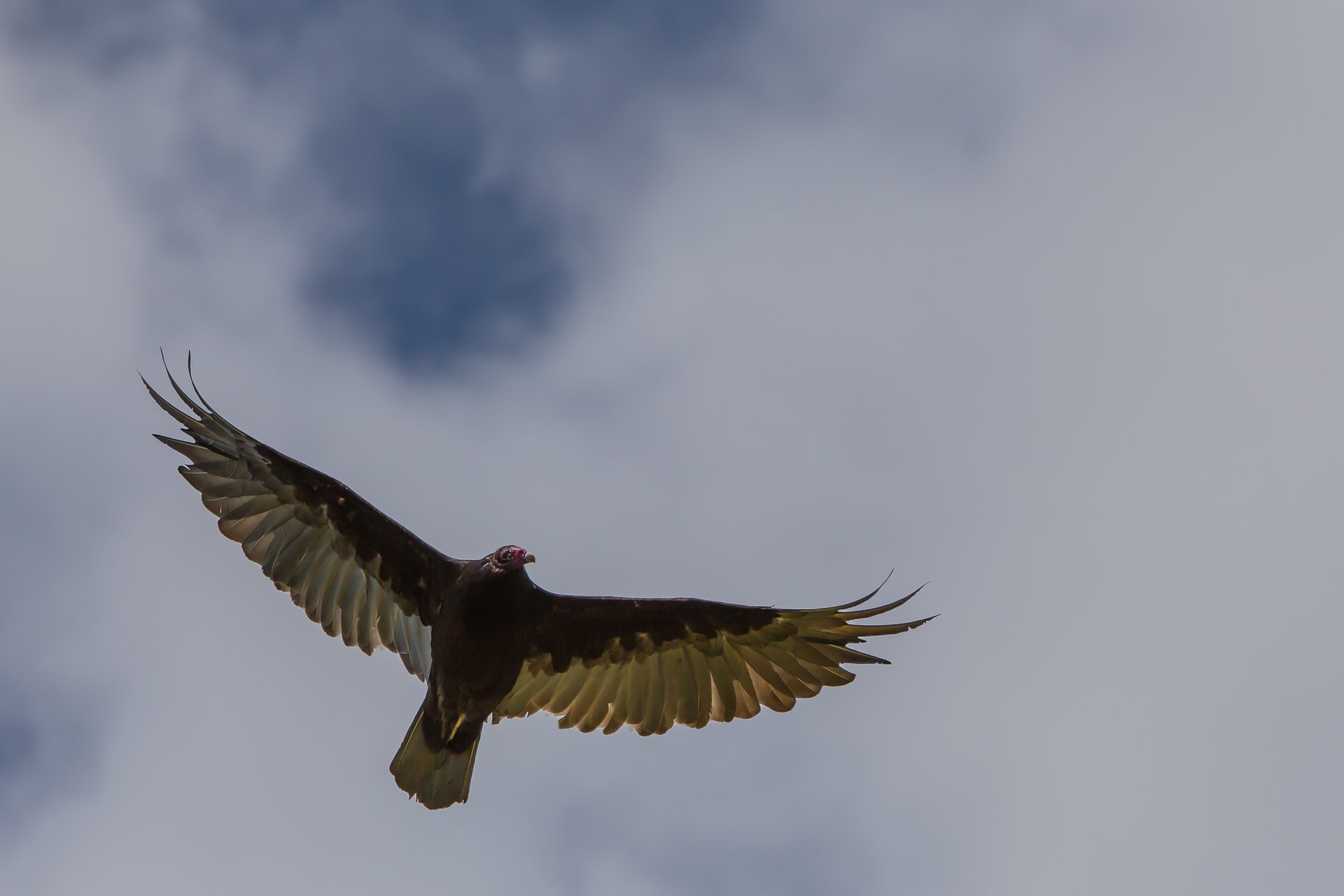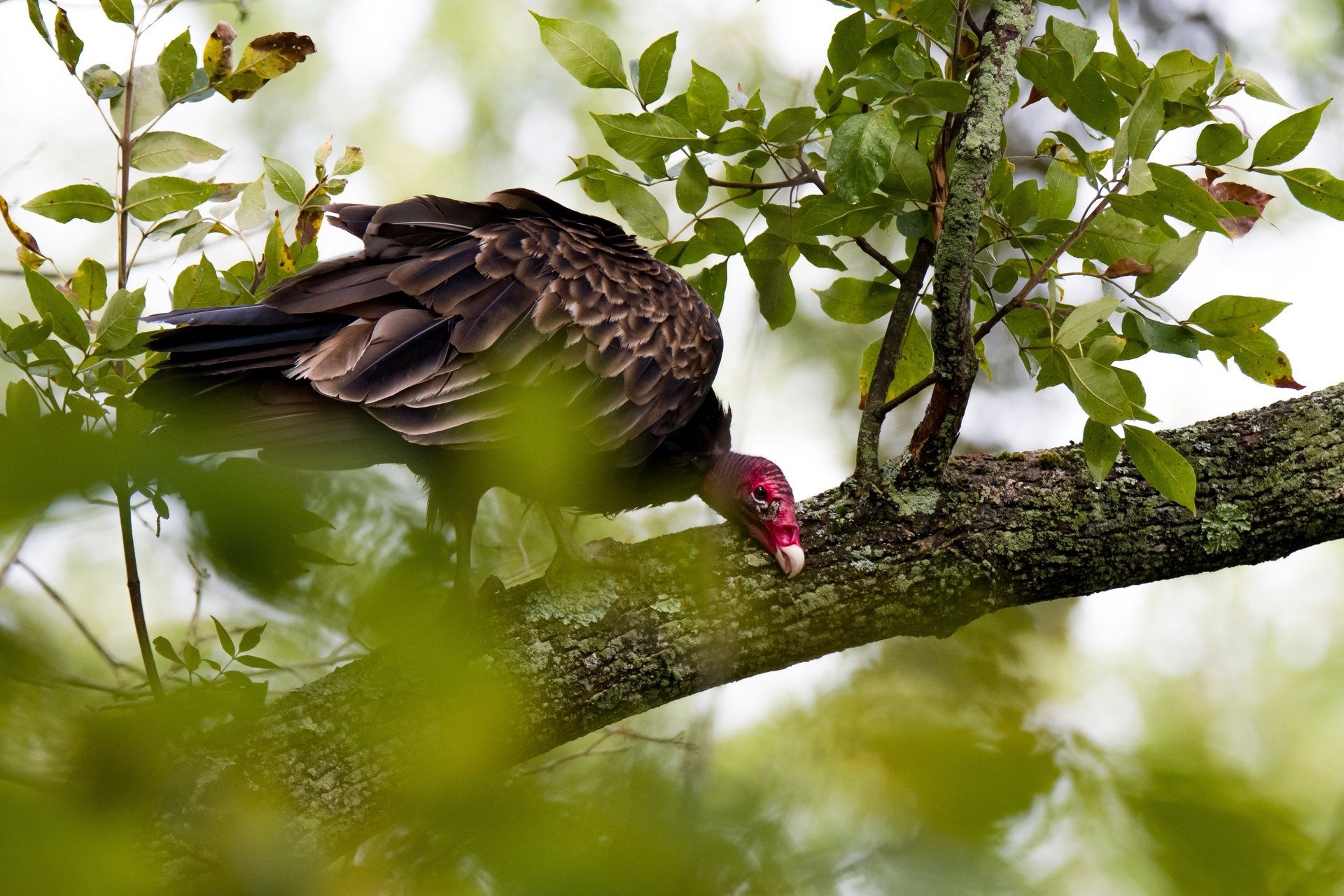Turkey Vultures
Although soaring Turkey Vultures are now a regular sight in Massachusetts, they were rare until recent decades, when they expanded their range northward.
The first confirmed breeding pair in the state was observed in 1954. They now provide their valuable cleanup services across most of the Commonwealth, consuming roadkill and other carrion.
How to Identify Turkey Vultures
Turkey Vultures are large birds with nearly 6-foot wingspans. In flight, they look very dark, and their wings are two-toned, with a pale gray trailing edge. How can you distinguish them from other soaring birds such as eagles or hawks? Look for their relatively tiny heads, and note that they hold their wings above their bodies in a shallow "V." They also have a distinctive "wobbly" soaring style.
Turkey Vultures are named for their resemblance to Wild Turkeys. When you encounter perching vultures, you can see why—like turkeys, their bodies are bulky, and their small heads are featherless and bright pink-red.
Turkey Vulture Behavior
Turkey Vultures sometimes overwinter in the state, but many of them migrate south. One of the earliest signs of spring is the sight of a Turkey Vulture soaring overhead! While the bulk of the migration begins in mid-March, you may see these birds as early as February, often in groups of two or more.
At night, they gather together to roost. Dozens of birds may roost together.
Turkey Vulture Life Cycle
These vultures are becoming more numerous in the eastern US. They likely breed throughout Massachusetts except for parts of Cape Cod and Martha's Vineyard. However, breeding activity can be difficult to confirm because their nesting sites are remote and hard to find.
They generally nest on the ground in sheltered areas such as hollow logs, caves, or rock crevices. They lay two eggs directly on the flat surface. Both parents take turns incubating them during a 34-41day period.
Once the young hatch, both parents continue to care for them. If the chicks are alone at the nest and feel threatened, they will defend themselves by hissing and regurgitating. The young fledge at 9-10 weeks, but remain dependent upon their parents for another one to three weeks. At about 12 weeks they leave the nest area and may join a nearby communal roost.
What Do Turkey Vultures Eat?
Turkey Vultures specialize in eating carrion (dead animals). They have a well-developed sense of smell that they use to find food. Their heads are naked so that they can reach inside a carcass without contaminating their feathers. They usually feed alone. However, if a vulture sees others feeding on a carcass, it may fly down to join them.
Are Turkey Vultures Protected?
Turkey Vultures are protected by federal laws under the Migratory Bird Act of 1918, as well as by Massachusetts state laws. It is illegal to destroy, relocate, or possess birds, their nests, or their eggs.
How Mass Audubon is Supporting Birds in Massachusetts
Mass Audubon works at our wildlife sanctuaries and beyond to ensure that the nature of Massachusetts continues to thrive. By scientifically monitoring Massachusetts birdlife, Mass Audubon informs important conservation decisions and launches targeted initiatives to help at-risk species. In addition, fostering healthy habitats, supporting native species, and educating people about the importance of nature conservation is critical to our success. Learn more about our work
How You Can Support Birds in Massachusetts
Mass Audubon supports birds like the Turkey Vulture every day, but we couldn’t do it without the support of our 160,000+ members.
Help support Turkey Vultures, and birds like them, by becoming a member today.
Upcoming Bird Programs
See MoreBird Research in Action
-
Wellfleet Bay Wildlife Sanctuary, South Wellfleet
-
Friday, November 1
9:15-10:15am
Adults & Families - 8 & up
Level Up Your Birding: Waterfowl on Berkshire Lakes
-
Pleasant Valley Wildlife Sanctuary, Lenox
-
2 classes starting
Friday, November 1
5:00-6:30pm
Adults
Saturday Morning Birding
-
Broadmoor Wildlife Sanctuary, Natick
-
Saturday, November 2
8:00-10:00am
Adults
Stay Connected
Don't miss a beat on all the ways you can get outdoors, celebrate nature, and get involved.






